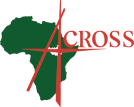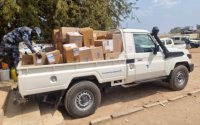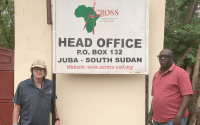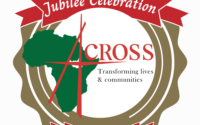Empowering young people for a better future
ACROSS, in partnership with UNESCO and Sida, has improved livelihood and decreased unemployment among marginalized adolescents from lower-income households by enhancing gender-responsive governance and offering relevant and high-quality Technical Vocational Education and Training (TVET) in the Lake States. The interaction also examined the ability to adapt to the environment and climate change in order to lessen vulnerability and the likelihood of internal conflicts within communities.
ACROSS was able to link 265 youth (152M, 113F) for on-the-job trainings, empower 698 youth (477M, 221F) for various TVET trades, conduct ToT for 94 key implementers, form partnerships with six private enterprises, and reach out to the younger generation by forming 6 peace clubs in Wulu, Yirol East, Yirol West and Rumbek central and Rumbek East.
Our key Achievements
The trained youth in boda-boda mechanics (Motorcycle) have started earning a living, they can now carry minor maintenances on motorcycle and small generators like change engine oils, repair punctures of inner tubes, change worn brakes shoes, change sparkplugs and any electrical related faults.
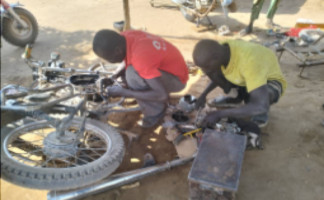
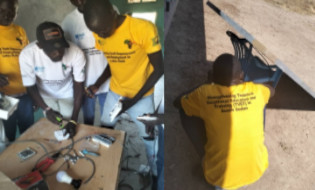
The youth trained in basic solar maintenance and installation, can install solar in the communities where they come from and rectify any defaults making solar not to produce electricity. There are able to do wiring in saloons, homes and shops.
The Vegetable production have already started growing their own vegetables and greens for sale. They have learnt skills on vegetable production, how to prepare nursery beds, transplanting techniques and pest controls.
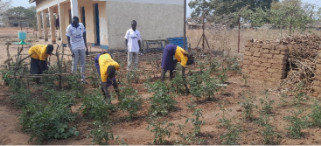
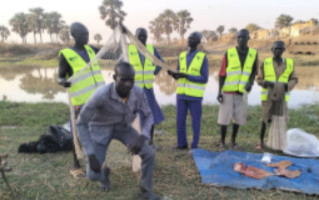
Youth trained in fisheries (Fishing techniques and preservation) gained fishing skills and how to preserve fish for sale. They can fish for domestic consumption and sale as well. This have improved their livelihoods and boosted peace in both family setting and their communities.
The youth trained in livestock vaccination and looking after livestock in the cattle camps have gained a lot of skills. They can identify local diseases in their animals and vaccinate. Additionally, they were trained on peaceful co-existence (peace building). The youth are able to live in harmony with their neighbors, cattle raiding has subsided in cattle camps where this project was implemented.
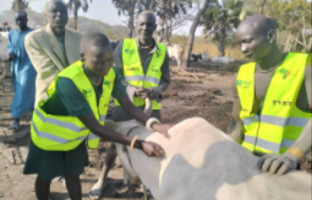
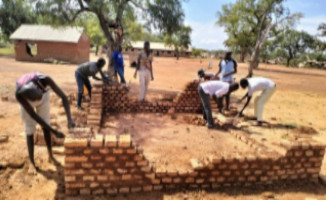
Youth trained in masonry are now able to build small houses in their communities at a cost which is a great achievement to their livelihood. Before, they didn’t have the skills of raising wall but after the training they now have the skills required to raise a wall.
Black Smith youth gained a lot of skills in making local tools like knives, spears, hoes, and many others. Many local residents are able to purchase from them as the tools are relatively cheap compared to the ones sold at hardware shops.
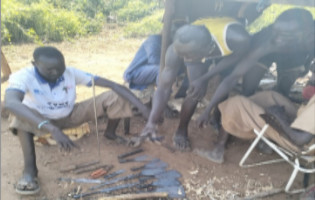
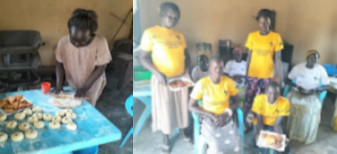
Bakery trained youth of Rumbek East, Yirol East and Yirol West can bake bread (Eshi), Mandazi, Chapatti, Sambuusa, and doughnuts for sale. This has greatly improved their livelihoods. The local communities can buy bread and cookies from them.
Saloon for men trained beneficiaries can shave hairs, work in men’s saloon, and get little wages in return. This has greatly impacted positively in their lives.
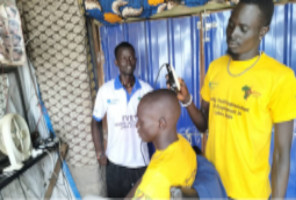
Case story
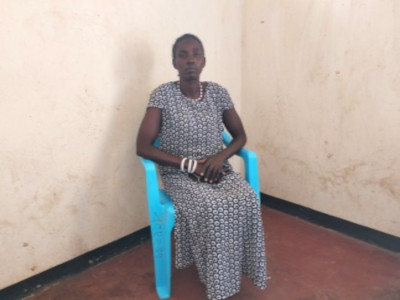
During the fighting between South Sudan and the Sudanese government, my husband passed away. I have 6 children (3 boys, 3 girls). I was dependent on my brother-in-law for help, but he is now unemployed. This made things quite challenging at home. I made the decision to apply to Wulu County’s hair salon training program. After being admitted, I devoted my entire day to studying every kind of hair style in detail. As I excelled, I was given the responsibility of assisting the hair styling instructors. As of right now, I’m making between 3,000 ($4.97) to 5,000 ($8.28) SSP per day, or 120,000 ($198.7) to 150,000 ($248.34) SSP per month. I managed to save myself 48,000 SSP ($79.47) in January 2024 and throughout the Christmas festival. Since food prices tend to rise at the beginning of the year, I decided to buy several tins of dura for my children and simultaneously joined a Wulu VSLA group to start saving money while still working as an assistant hairdressing trainer. as disclosed by Monica Yeke Mbam
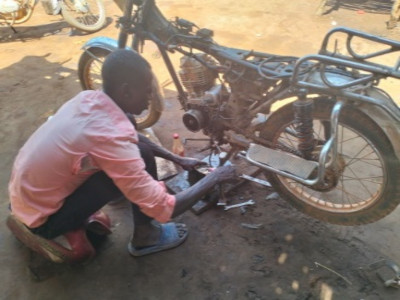
I studied auto-mechanic in Wulu County and was trained in monitor bike maintenance. I worked practically before my training was over, and the knowledge and abilities I acquired let me earn 150,000 SSP ($248.34) from my work. I bought goats with some of the money, and I spent the remaining 70,000 SSP ($115.89) to buy clothes for my children for the New Year. John Dilu Awac
Limitations
Notwithstanding ACROSS’s successes, there have been certain setbacks, including prolonged drought and restricted water supplies for certain vegetable cultivation, insecurity brought on by pastoralists, particularly in Yirol East, inflation/high material costs, and high expectations from the learners.
